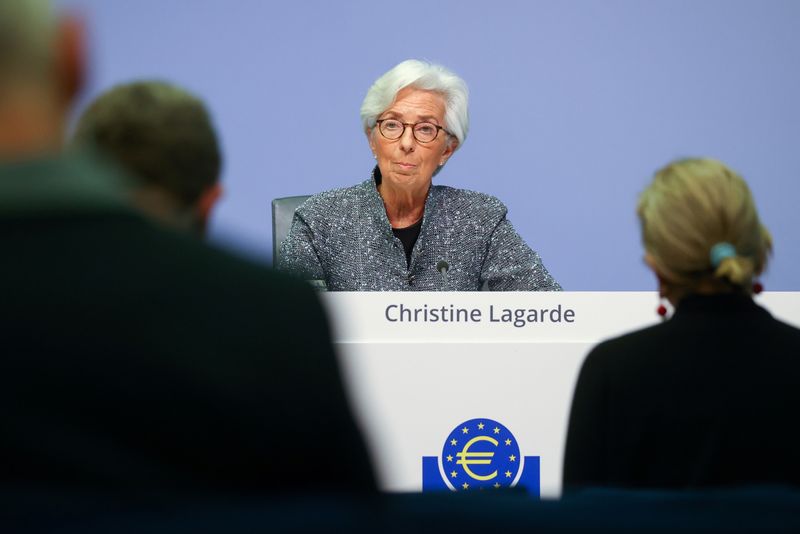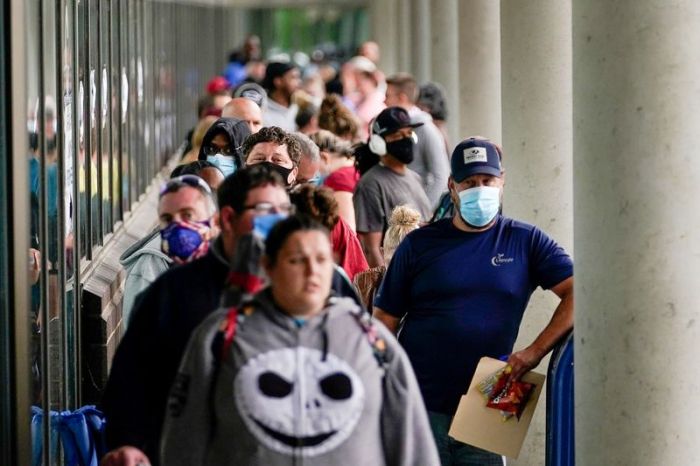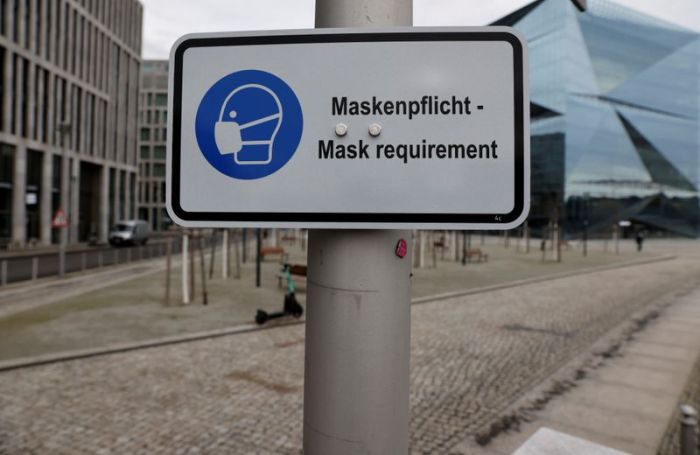FRANKFURT (Reuters) – The European Central Bank warned on Thursday that the recent surge in COVID-19 infections posed a risk to the euro zone’s recovery and reaffirmed its pledge to keep borrowing costs at record lows to help the economy weather the pandemic.
Having extended stimulus well into next year in December, the central bank for the 19 countries that share the euro kept policy unchanged, keen to let governments take over the task of keeping the economy afloat until business can resume as usual.
But its president Christine Lagarde warned that a new rise in cases and the ensuing restrictions to activity would dampen activity in the near term and said the ECB was prepared to provide even more support for the economy if needed.
“The resurgence of the pandemic and the associated intensification of containment measures have likely led to a decline in activity in the fourth quarter of 2020 and are also expected to weigh on activity in the first quarter of this year,” Lagarde told a news conference.
Fresh lockdowns, a slow start to vaccine rollouts across the bloc, and the currency’s strength are all challenging the ECB’s forecast of a robust recovery starting in the second quarter.
But Lagarde saluted the start of vaccinations as “an important milestone” and argued that an orderly Brexit and the conclusion of the U.S. presidential election were mitigating risks so the ECB’s growth projections remained valid.
Lagarde nevertheless kept a closely watched reference to “downside” risks facing the euro zone economy, which has been a reliable indicator that the ECB saw policy easing as more likely than tightening, not least because a strong euro was putting a dampener on inflation
The euro was up 0.3% against the dollar on the day at $1.2143 a 1431 GMT after Lagarde said the ECB was “very carefully” monitoring the exchange rate.
The euro has dropped 1% on a trade-weighted basis since the start of the year, but is up nearly 7% over the last 12 months. Against the U.S. dollar, that number rises to over 10%.
MORE STIMULUS?
“The ECB remains happy at the sidelines and has kept all options open,” ING economist Carsten Brzeski said. “As boring as this might sound, it probably was the best thing to do. In the absence of any severe economic accident, the ECB is likely to stick to this line at least until late summer.”
Keeping the door open for more stimulus if needed, Lagarde confirmed the ECB would continue buying bonds until it judges that the coronavirus crisis phase is over.
She also reaffirmed a pledge that all of the ECB’s instruments remained in play and that the bank would adjust them as needed.
“Once the impact of the pandemic fades, a recovery in demand, supported by accommodative fiscal and monetary policies, will put upward pressure on inflation over the medium term,” Lagarde said.
Benign market indicators support Lagarde’s argument. Stocks are rising, interest rates are steady and government borrowing costs are trending lower, despite some political drama in Italy.
There is also around 1 trillion euros of untapped funds in the Pandemic Emergency Purchase Programme (PEPP) to back up her pledge to keep borrowing costs at record lows.
Lagarde indicated the ECB may not even need it to use it all, saying: “If favourable financing conditions can be maintained with asset purchase flows that do not exhaust the envelope over the net purchase horizon of the PEPP, the envelope need not be used in full.”
Recent economic history also favours the ECB. When most of the economy reopened last summer after initial coronavirus lockdowns, activity rebounded more quickly than expected, indicating that firms were more resilient than had been feared.
Uncomfortably low inflation is set to remain a thorn in the ECB’s side for years to come, however, even if surging oil demand helps put upward pressure on prices in 2021.
With Thursday’s decision, the ECB’s benchmark deposit rate remained at minus 0.5% while the overall quota for bond purchases under PEPP was maintained at 1.85 trillion euros.
(Editing by Catherine Evans)

























